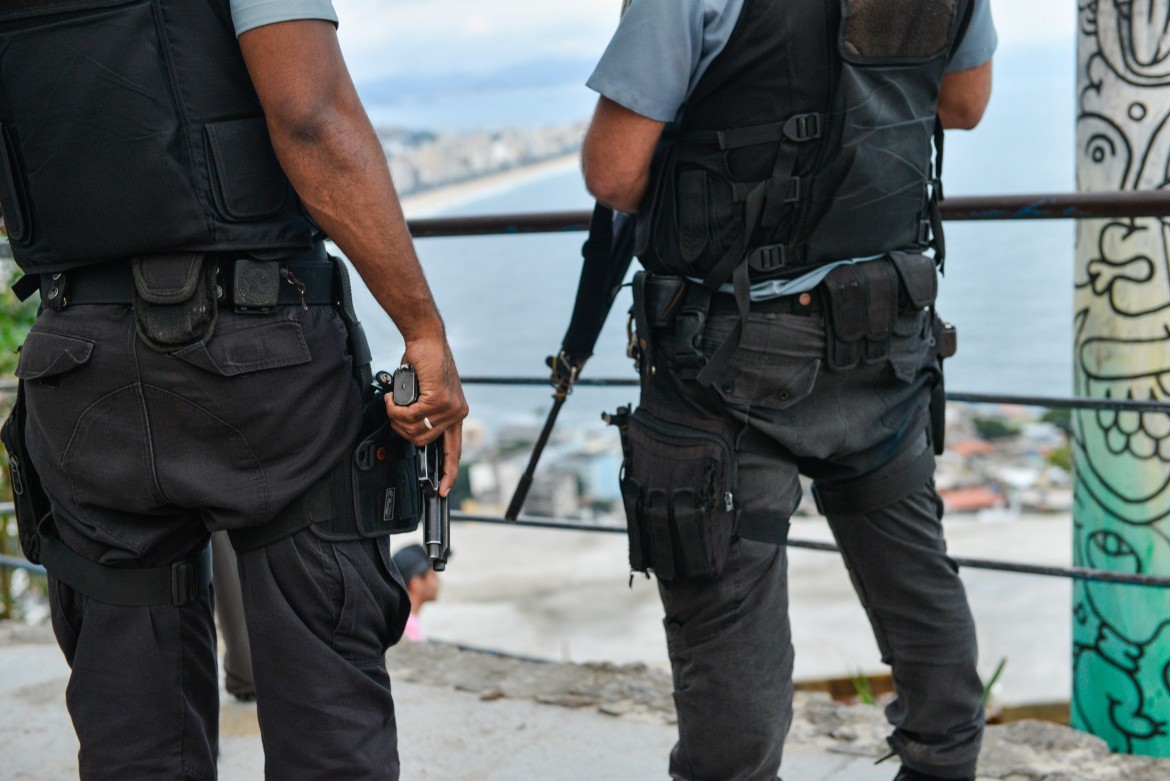Report
Rio is in the hands of the army as Temer militarizes Brazil
Experts agree that the effect of the Police Pacification Units, intended to fight organized crime, will be nothing at all. “We’ve already seen this movie, and it doesn’t end well.”

Brazil is sinking into a state of permanent exception. The latest in a long series of blows was the decree, signed by Temer and approved on Monday by the Chamber of Deputies and the Senate, by which the government, for the first time since the entry into force of the Constitution in 1988, delegated to the armed forces the task of maintaining public safety in the State of Rio de Janeiro until Dec. 31 of next year.
This measure was claimed to be justified by the need to fight organized crime, but its real purpose was to avoid a vote on the extremely unpopular issue of pension reform, in which the government would have been defeated. Brazilian law does not permit organizing a vote on a constitutional amendment while a special federal intervention is underway.
At least for this parliamentary term, the threat of pension reform has been averted, which would have had devastating effects on the poorer strata of society. However, the alarm caused by the intervention of the military in Rio de Janeiro is not any less serious, reinforcing the notion that involving the military is the solution for everything.
“We’ve already seen this movie, and it doesn’t end well,” said the leader of the National Coordination of the Movement of Homeless Workers, Guilherme Boulos.
Moreover, there are innumerable problems with this measure, considered to be a point scored in the favor of the penal State against the welfare-oriented State. It is clear that by moving more and more towards the militarization of the fight against crime, the State is abdicating yet again its task of addressing the structural causes of violence, opting instead for a brutal intervention in the favelas, always seen as a hostile space, to be repressed and nothing more.
This decision doubles up on the failure of the strategy for territorial control implemented through so-called “Police Pacification Units,” which was aimed more at protecting the city from the favelas and their inhabitants than at guaranteeing the right to safety for everyone.
As to the practical effects of this measure in terms of a concrete reduction in the level of crime, experts agree that there will be no effect at all—if only for the fact that the armed forces, trained to fight enemies in war, are not prepared to deal with the problems they will face.
Unless, indeed, they were to consider the people themselves as an enemy, and decide to unleash war upon them.
However, among the population, which has remained largely passive towards the coup against Dilma Rousseff—obviously not considering her government to be something worth defending—an awareness of the true stakes at play is beginning to emerge.
This is because, after the freezing of the level of spending for public services for the past 20 years, after a labor reform that gave the force of law to any and all agreements entered into by an employer and their employees, and after the attempt at dismantling the social security system—to name just a few examples—it has become clear what the real aim of the coup was: as the leader of the Landless Workers Movement (MST), João Pedro Stédile, explained, it was to allow the oligarchy to “put all of the negative effects of the crisis on the shoulders of the working class.”
And this is why the real fight at the moment is playing out around the defense of Lula’s candidacy, as a symbol of a politics in favor of the rights of the people—far beyond the actual details of his proposals, all under the banner of class reconciliation. But on this front as well, where there has been another “mini coup” by the courts against the former president (who was sentenced by an appeals court to 12 years and one month in prison after a sham trial), the signs so far are not good at all.
Although Brazil’s Constitution does not call for the arrest of the convicted before the sentence becomes final, the Federal Supreme Court has ruled that the serving of a sentence can already start after a conviction by an appeals court—before, that is, an appeal to higher authorities is finalized. This highly controversial decision was followed up by orders for the immediate arrest of the deputy João Rodrigues, who was sentenced by an appeals court to five years and three months for fraud—a clear warning sign aimed at Lula.
Another sign that Lula is being backed into a corner was the recent statement by the new president of the Supreme Electoral Tribunal, Luiz Fux, who seems to be determined to prevent the registration of a candidacy for president by any person with a conviction at the appeals court level (which current law, in fact, allows). Everything is, as always, aimed directly against Lula himself, who is still clearly ahead in all the polls.
Originally published at https://ilmanifesto.it/temer-militarizza-il-brasile-rio-nelle-mani-dellesercito/ on 2018-02-22
